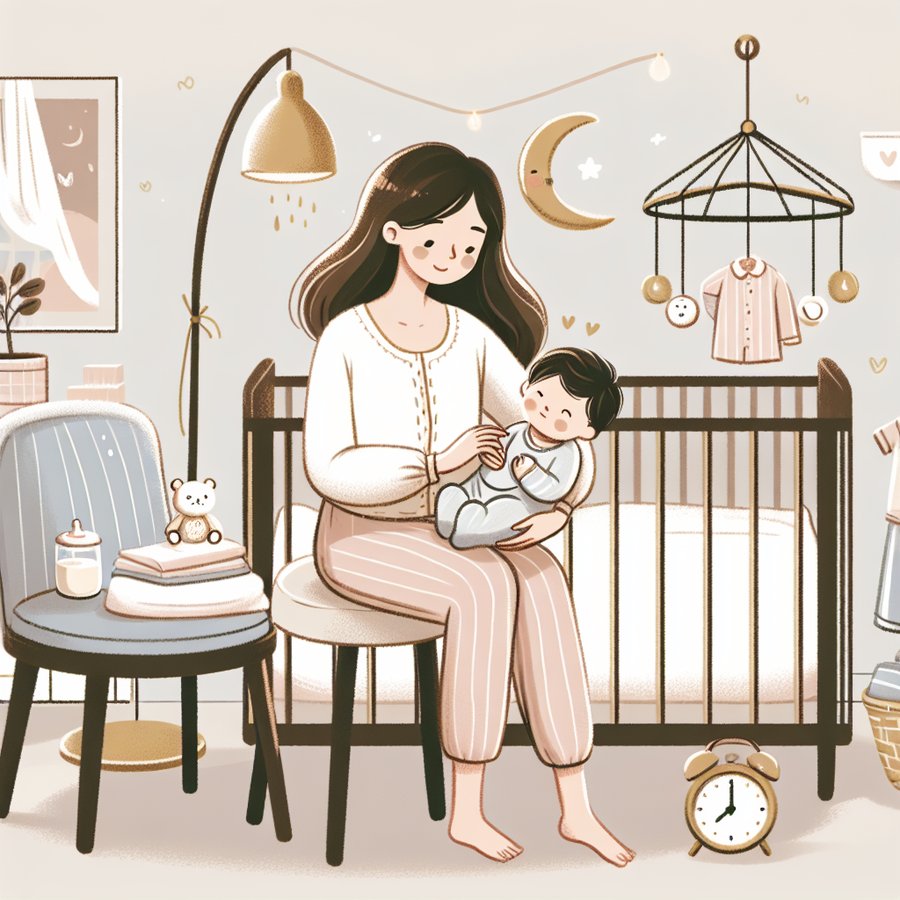Establishing sleep routines for 1-week-old newborns is crucial, not only for the baby’s development but also for the well-being of the entire family. During the first week of life, newborns are adjusting to the world outside the womb, and parents are adapting to their new roles. This article delves into effective strategies, recommended practices, and expert advice to help you navigate this challenging yet rewarding time.
Understanding the Sleep Patterns of 1-Week-Old Newborns
Newborns typically sleep a lot, averaging between 16 to 18 hours a day. However, this sleep is spread out over the course of 24 hours, with wakeful periods lasting 1-3 hours. It’s important to recognize that, at one week old, babies have not yet developed a circadian rhythm, meaning their sleep can occur at any time of the day or night. This external link provides additional insights into newborn sleep patterns.
During this initial week, sleep routines for 1-week-old newborns involve creating a conducive sleep environment and beginning to introduce patterns that will eventually help regulate their sleep. This includes understanding the signs of sleepiness such as yawning, rubbing eyes, or fussiness, and responding promptly by putting them down to sleep in a safe, comfortable space.
Establishing a Nurturing Sleep Environment
Creating a sleep-friendly environment is essential for encouraging good sleep habits from the start. This involves ensuring the room is at an ideal temperature, which experts suggest is between 68 and 72 degrees Fahrenheit. Utilizing white noise can also be beneficial in mimicking the constant sounds the baby was accustomed to in the womb. For more information on optimizing your nursery for sleep, consider reading about the ideal nursery setup.
In addition to environmental factors, the choice of sleepwear is crucial. Opt for comfortable, breathable fabrics that keep your newborn at just the right temperature. Avoiding overbundling is important to prevent overheating, which is a risk factor for SIDS. More on selecting the right sleepwear can be found at choosing the right sleepwear for your baby’s comfort.
Sleep Routines for 1-Week-Old Newborns
At one week old, establishing a sleep routine might seem premature, but it’s about laying the foundation for good sleep habits. Start by creating a simple bedtime routine that might include dimming the lights, a gentle massage, a soft lullaby, or swaddling. These actions signal to your baby that it’s time to wind down and prepare for sleep. For further guidance on establishing sleep schedules, this article offers excellent advice.
It’s also critical to focus on safe sleep practices from the very beginning. Always place your baby on their back to sleep, in a crib or bassinet that meets current safety standards, without any loose bedding or soft toys. This not only supports the development of healthy sleep routines but also significantly reduces the risk of SIDS. For more information on safe co-sleeping practices, check out safe co-sleeping practices for newborns.
The Role of Feedings in Sleep Routines
Feedings play a significant role in the sleep routines of 1-week-old newborns. At this age, babies need to be fed on demand, which often means every 2-3 hours, including throughout the night. This frequent feeding schedule is vital for their growth and development but can disrupt sleep patterns. Implementing a feeding and sleep log can help parents identify patterns over time.
After night feedings, aim to keep the environment calm and quiet, with minimal stimulation. This helps signal to your baby that it’s still time for sleep. Strategies for minimizing sleep disruption during feedings include keeping the lights dim and interactions subdued. More tips on handling night feedings can be found in handling night feedings with minimal sleep disruption.
Conclusion
While the concept of sleep routines for 1-week-old newborns might seem daunting at first, the key is to start simple and be consistent. By laying the groundwork for healthy sleep habits, you’re not only aiding your baby’s development but also setting the stage for more restful nights for the whole family in the future. Remember, patience and flexibility are your best tools during this time, as every baby’s sleep patterns will evolve at their own pace.
For ongoing support and more in-depth discussions on baby sleep and beyond, exploring resources such as Baby Whys and Hows can offer invaluable guidance. Remember, you’re not alone in this journey, and there’s a wealth of knowledge and community support available to help you and your baby sleep better.













